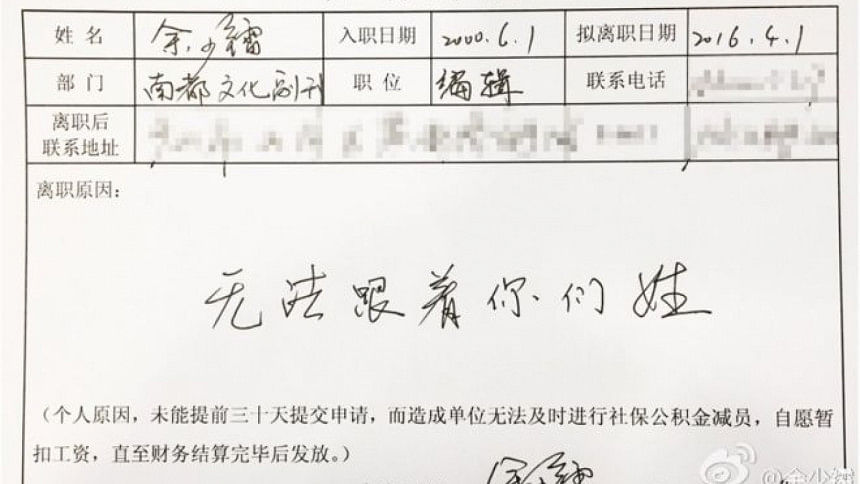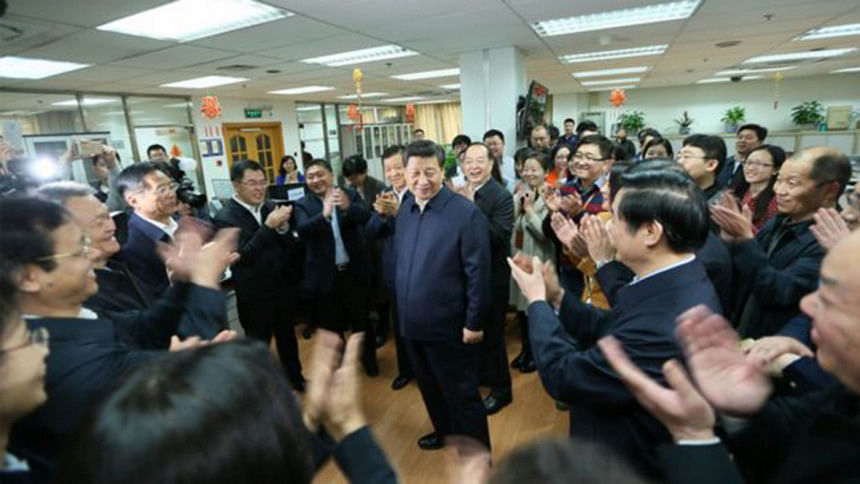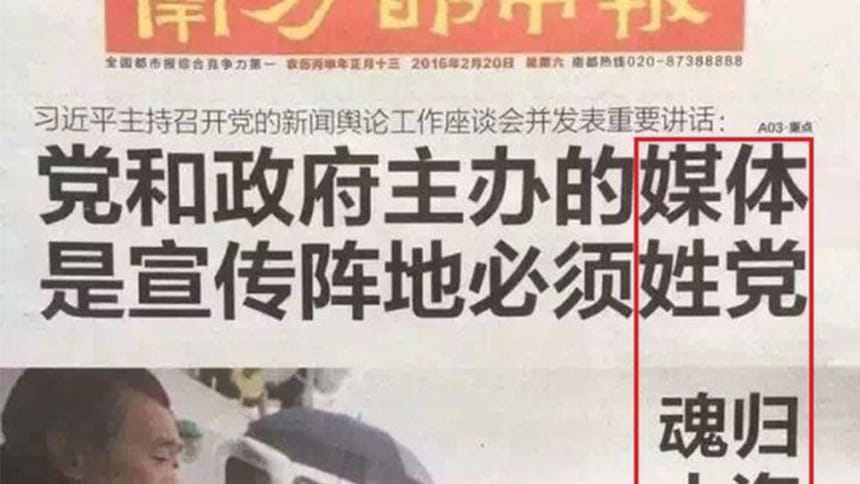China editor resigns over censorship

A top journalist at a Chinese newspaper says he is resigning because of the authorities' control over the media.
Yu Shaolei, an editor at Southern Metropolis Daily, posted a resignation note online, saying he could no longer follow the Communist Party line.
He also uploaded a message wishing those responsible for censoring his social media account well.
Chinese media outlets are subject to censorship, with government control tightening in recent years.
Yu, who edited the cultural section of the newspaper, posted a photo of his resignation form on his Sina Weibo microblog account on Monday evening.
Under the "reason for resignation" section, he wrote: "Unable to bear your surname".
This was a reference to Chinese President Xi Jinping's tour of state media outlets in February, when he said journalists must give absolute loyalty to the Communist Party, and "bear the surname of the Party".
Yu's post was quickly deleted, although a cached copy was still viewable on monitoring sites online.
He wrote: "I'm getting old, and my knees can't stand it after so many years [of kneeling]."

He added what appeared to be a tongue-in-cheek apology to the censors responsible for monitoring his social media account.
"To the person responsible for watching my weibo feed and notifying their superiors about what to delete, you can heave a sigh of relief now, apologies for causing you stress over the last few years, and I sincerely wish your career will head in a new direction."
Journalists detained
When approached by the BBC, Yu said he did not wish to comment further, and that he had said everything he wanted to say on social media.
It is not known if he has received any admonishment from the authorities, the BBC's John Sudworth in Beijing reports.
A columnist at the same paper, Li Xin, who disappeared in mysterious circumstances in Thailand after claiming he had been forced to inform on fellow journalists, is now back in police custody in China, our correspondent adds.
And last month, a front-page editor at Southern Metropolis Daily was fired after the headlines on one of the newspaper's front pages, when combined with a headline from another story, allegedly contained a veiled criticism of the government's demand that media "bear the surname of the Party".
In recent weeks, China detained more than 20 people following the publication of a letter calling on President Xi to resign on state-backed website Wujie News.

Those detained included journalists linked to the website, employees at a related technology company, and prominent columnist Jia Jia, who has since been released.
Two overseas Chinese dissidents also say their relatives have been detained in connection with the letter.
Wen Yunchao, who lives in the US, said he believed his parents and his brother had been detained because authorities were trying to pressure him to reveal information. But he told the BBC that he knew nothing about the letter.
Meanwhile, German-based writer Zhang Ping, also known by his penname Chang Ping, said three of his siblings had been detained and that Chinese police had demanded that he stop writing in German media.
Zhang said he had written about the letter, but had no other connection to it.
Authorities in China said they were investigating Zhang's relatives on suspicion of arson.

 For all latest news, follow The Daily Star's Google News channel.
For all latest news, follow The Daily Star's Google News channel. 








Comments